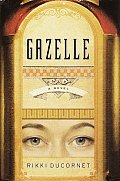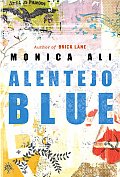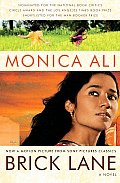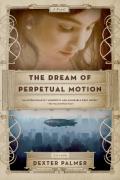source: Netgalley (review copy)
Three Lives of Tomomi Ishikawa by Benjamin Constable
One day Benjamin Constable, a 38-year-old Brit living in Paris, comes home to find a letter from his friend Tomomi (Butterfly) Ishikawa, an American expatriate, slipped underneath the door of his apartment. In that letter, Butterfly informs Ben that she's committed suicide and that he is "the inheritor of a thing, or many things, [she's] been making for years, since long before [she] knew of [his] existence--since [her] childhood, in fact" (21). Ben follows a series of clues that lead him to places in Paris and later New York that had special meaning to Butterfly. The more clues Ben follows, the more he learns about his friend. If the disturbing tales contained in the series of notebooks Butterfly left for him to find are any indication, Ben didn't know her well at all.Ever since writing was invented, people have been documenting the contents of their brains, giving names to ideas, noting their dreams, and distorting their memories and making up new ones. Lifetimes of scribbling, and oceans of ink. Whole forests of trees reduced to pulp for us to collect our words. What if nobody reads them? I think we write to be read, even if we tell ourselves we don't. But the vast majority of everything written fails in its most basic purpose and has never been read by another. Where are you to read my works, Tomomi Ishikawa? Are we talking to ourselves? (175)
Three Lives of Tomomi Ishikawa is a difficult book to describe. Horrifying and playful are the first two adjectives that come to mind. If I had to categorize it, I'd call is a literary psychological thriller. It is also a bit of a love letter to both Paris and New York City.
In a way I think Three Lives of Tomomi Ishikawa may be more about the process of writing than it is about anything else, or rather the tension between fact and fiction that is inherent in writing, autobiographical or not. Butterfly's clues and the way they are presented to him make Ben question the truth of what he is being told. Constable forces his readers to experience that same uncertainty by making himself the protagonist in his debut novel.
The novel is compelling, but I can't say that I enjoyed reading it. After a certain point,1 I dreaded picking it back up again each time I set it down. Though early on in the novel, I imagined how wonderful it would be to be in Paris with Three Lives of Tomomi Ishikawa as a guidebook.2 I also didn't quite care for the ending, though I understand why Constable decided to end it the way that he did.3
I can imagine Three Lives of Tomomi Ishikawa being the source of a particularly fruitful undergraduate literature seminar discussion.
I had to include a featured word, because I love how Constable defined tickety-boo within the narrative:
'Tickety-boo?'footnotes:
'Yes, it's British English. It means everything is running perfectly, or according to plan, and portrays a sense of contentedness with the current situation.' (173)
- The discovery of the first notebook and the revelation of its contents.
- While I live close enough to New York City to use Three Lives of Tomomi Ishikawa as a guide to some of its special places, the combination of the summer weather we are experiencing now (I can't even imagine tromping around the city in this heat) and the onset of the horrifying aspect of the novel put me off the idea.
- To leave room for the uncertainty of which he seems so fond.
disclosure: I received a review copy of Three Lives of Tomomi Ishikawa from Gallery Books (Simon and Schuster) via NetGalley.

 That afternoon I heard the curious vocabulary of the perfumer for the first time. Vulgar was said with a sneer, venomous shadow with reverence. A scent might be milky or metallic, sulphurous or chalky. One was to be worn with linen the color of sand or snow; one was prodigious, one had a velvet body, another's was deep red, or, if worn in stormy weather, red veering to black; one smelled of old silver and cedar forests, and yet another was symphonic--"unlike the stenches my rivals call perfume but which are no better than the urine of asses and camels!" The great perfumes of ancient Egypt: hekenou, medjet, sefet, and nekhenem he called: irresistible. Their names alone seemed to darken the garden air with a mysterious smoke. (38-39)
That afternoon I heard the curious vocabulary of the perfumer for the first time. Vulgar was said with a sneer, venomous shadow with reverence. A scent might be milky or metallic, sulphurous or chalky. One was to be worn with linen the color of sand or snow; one was prodigious, one had a velvet body, another's was deep red, or, if worn in stormy weather, red veering to black; one smelled of old silver and cedar forests, and yet another was symphonic--"unlike the stenches my rivals call perfume but which are no better than the urine of asses and camels!" The great perfumes of ancient Egypt: hekenou, medjet, sefet, and nekhenem he called: irresistible. Their names alone seemed to darken the garden air with a mysterious smoke. (38-39) I read Monica Ali's debut novel,
I read Monica Ali's debut novel,  Here's what I thought about
Here's what I thought about  As I
As I